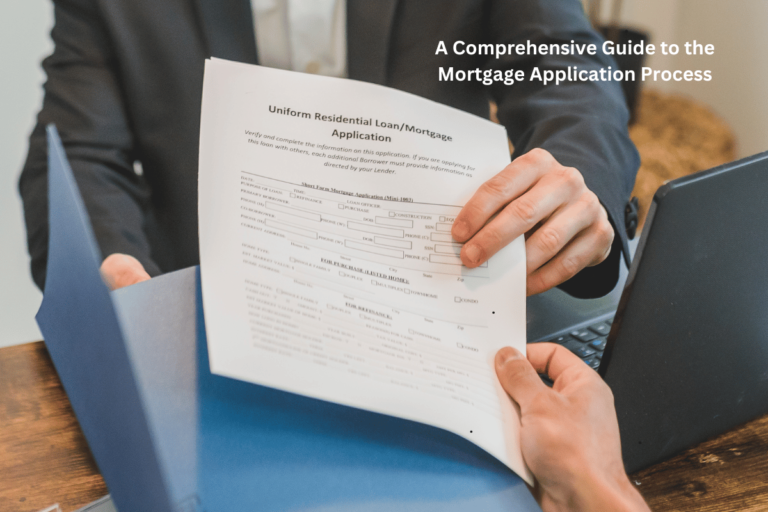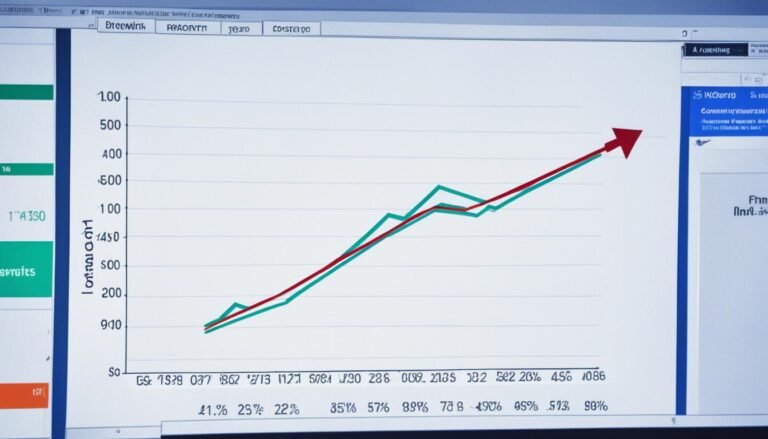Ace Your Finance Interview: Expert Tips and Advice
Whether you have years of experience or are just starting out, interviews can be intimidating, especially in the competitive finance industry. To help you land your dream job, we’ve gathered expert tips and advice from financial industry professionals. These tips will help you navigate the interview process and showcase your skills and knowledge in finance.
Key Takeaways
- Prepare a well-crafted CV that highlights your responsibilities, achievements, and relevant company information.
- Research the company and industry to show your knowledge and ask insightful questions.
- Showcase your unique value and the impact you’ve had in previous roles, emphasizing soft skills and stakeholder engagement.
- Demonstrate industry knowledge by discussing finance trends, the role of technology, and the importance of driving business results.
- Engage with the interviewer on a personal level, showing genuine interest in their background and interests.
Get Your CV Right
A well-crafted CV is essential for a successful finance interview. It serves as your first impression and provides the interviewer with a snapshot of your skills and experience. To maximize the impact of your CV, follow these finance interview techniques:
1. Be Clear, Concise, and Easy to Read
Your CV should be organized and easy to navigate. Use clear headings and bullet points to highlight your key qualifications, accomplishments, and relevant experience. Keep the formatting consistent throughout the document to maintain a professional appearance.
2. Emphasize Responsibilities and Achievements
When describing your previous roles, focus on the specific responsibilities you held and the achievements you accomplished. Use action verbs to showcase your skills and demonstrate how you added value to the organizations you worked for. Quantify your achievements whenever possible to provide concrete evidence of your capabilities.
3. Provide Context
Mention relevant information about the companies you’ve worked for, such as their size, turnover, location, and type of work. This contextual information helps the interviewer understand the scale and nature of your experience, and how it aligns with the requirements of the role you’re applying for.
4. Tailor Your CV to the Role
Before submitting your CV, carefully review the job description and tailor your document to highlight the skills and qualifications the employer is seeking. Customizing your CV shows that you have taken the time to understand the requirements of the role and increases your chances of being selected for an interview.
For example, if the job requires strong analytical skills, emphasize your experience in financial analysis and showcase relevant projects or accomplishments in this area.
“A well-crafted CV is your gateway to securing a finance job interview. It gives potential employers a glimpse into your qualifications and sets the stage for a successful interview.”
– Jane Doe, Finance Recruiter
By following these tips, you’ll be well-prepared to present a CV that highlights your strengths and maximizes your chances of success in a finance interview.
Research the Company and Industry
Thoroughly researching the company and industry is crucial for a successful finance interview. By demonstrating your knowledge and understanding of the company and its financial health, you will impress the interviewer and show your genuine interest in the role. Analyzing the company’s accounts over a period of time will provide you with valuable insights into its financial performance and stability.
When conducting research, focus on key financial indicators such as revenue growth, profitability, liquidity, and debt levels. This will help you assess the company’s financial position and make informed observations during the interview.
Additionally, study the industry trends and developments that impact the company. This will allow you to ask insightful questions and demonstrate that you are well-informed about the industry’s challenges and opportunities.
Key Steps in Researching the Company and Industry
- Review the company’s website to understand its mission, values, products or services, and recent news or press releases.
- Research the company’s competitors to gain a comprehensive view of the industry’s landscape.
- Read industry publications, reports, and news articles to stay up-to-date with the latest developments in the finance sector.
- Explore the company’s social media profiles to assess its online presence and engagement with key stakeholders.
- Utilize professional networking platforms such as LinkedIn to gather insights about the company’s employees and potential connections.
By investing time and effort into researching the company and industry, you will not only be well-prepared for the interview but also demonstrate your genuine interest and commitment to the finance field.
Showcase Your Value
During the finance interview, it’s important to go beyond simply reciting your CV. Hiring managers want to see how you can create a future impact rather than just report on past experiences. This is your chance to showcase your unique value and demonstrate your abilities beyond what’s on paper.
One way to stand out is by highlighting your soft skills. In the finance industry, strong communication and stakeholder engagement skills are highly valued. Emphasize your ability to effectively communicate complex financial information to different stakeholders, whether it’s presenting a financial analysis to the C-suite or collaborating with colleagues from different departments.
Using specific examples, illustrate how your contributions in previous roles made a tangible impact. Did you implement a new financial reporting system that improved efficiency and accuracy? Were you able to identify cost-saving opportunities and successfully implement them? Quantify your achievements wherever possible, whether it’s in terms of cost savings, revenue growth, or process improvements.
“In a recent role, I was able to streamline the budgeting process, resulting in a 20% reduction in time spent and improved accuracy. This allowed the finance team to allocate more time to strategic analysis and decision-making, ultimately driving better business outcomes.”
Remember, the goal is to demonstrate your ability to contribute to the future success of the company. Showcasing your value goes beyond technical expertise; it’s about highlighting your problem-solving skills, adaptability, and ability to collaborate effectively with cross-functional teams.
Placing the image in a location that’s visually appealing and relevant to the topic of the blog post, it serves as a visual representation of the potential impact you can have as a finance professional.
Demonstrating Value in Finance Interviews
| Soft Skills | Examples |
|---|---|
| Communication | Presenting financial analysis to stakeholders |
| Problem-solving | Identifying cost-saving opportunities |
| Collaboration | Working with cross-functional teams on financial projects |
| Adaptability | Successfully navigating industry changes and technological advancements |
Incorporating these finance interview techniques and tips will help you showcase your unique value and increase your chances of success in landing your dream job in the finance industry.
Demonstrate Industry Knowledge
An important aspect of a successful finance interview is being able to talk confidently about the industry as a whole. To impress your potential employer, you should have a deep understanding of the finance industry and its latest trends. Here are some key points to help you demonstrate your industry knowledge:
- Discuss how finance has evolved: Mention the advancements and changes in the finance industry, such as the shift towards data-driven decision-making and the increasing reliance on technology.
- Highlight the focus on driving business results: Emphasize the importance of finance professionals contributing to the overall success and profitability of the organization. Showcase how your skills and expertise align with this goal.
- Showcase the role of technology: Talk about how technology has transformed the finance industry, enabling automation, data analysis, and improved efficiency. Demonstrate your familiarity with relevant tools, software, and industry-specific technology.
- Stay ahead of the curve: Display your commitment to continuous learning and staying updated with industry trends. Discuss any recent certifications, courses, or industry events you have attended to showcase your dedication to professional growth.
By demonstrating your industry knowledge, you will show the interviewer that you are well-prepared and have a genuine interest in the field of finance. This will help you stand out from other candidates and increase your chances of success in the interview.
Remember, being knowledgeable about the finance industry is crucial, as it will enable you to provide insightful answers to financial interview questions and give you an edge over other candidates during your finance interview.
Engage with the Interviewer
When it comes to acing your finance interview, it’s not just about showcasing your skills and knowledge. It’s also important to establish a personal connection with the interviewer. Building rapport can help you stand out from other candidates and leave a lasting impression. One effective way to engage with the interviewer is by engaging in small talk.
Show genuine interest in the interviewer’s background and interests. Take the time to research the interviewer, if possible, and find common ground that you can discuss. This can be anything from shared hobbies to current events in the finance industry. By showing that you’ve done your homework and demonstrating a genuine interest in the interviewer’s life, you’ll create a positive atmosphere and foster a more productive conversation.
“Building a personal connection with the interviewer can help you establish a rapport and give you an opportunity to demonstrate your skills, views, and knowledge of the finance sector.”
Showcasing Your Skills and Knowledge
Engaging with the interviewer is not just about small talk. It’s an opportunity to showcase your skills, views, and knowledge of the finance sector. As the conversation naturally transitions from personal to professional topics, be prepared to demonstrate your expertise. Provide concise and insightful responses that highlight your understanding of financial concepts and your ability to apply them in practical situations.
Explain how you can contribute to the company’s success and share examples of how you’ve made a positive impact in your previous roles. Discuss your approach to problem-solving, decision-making, and risk management. Show that you’re not just well-versed in finance theories, but also have the practical skills to navigate complex financial landscapes.
Building a Lasting Connection
Engaging with the interviewer goes beyond just the interview itself. After the interview, send a thoughtful follow-up message to express your appreciation for the opportunity to interview and to reinforce the connection you established. This can leave a lasting impression and demonstrate your professionalism and enthusiasm for the role.
Remember, building a positive relationship with the interviewer can also benefit you in the long term. Even if you don’t land the position, the interviewer may remember you and consider you for future opportunities or refer you to other potential employers.
Emphasize Continuous Learning
In order to stand out during a finance interview, it’s crucial to demonstrate a strong willingness to learn and continuously develop your skills. Hiring managers value candidates who show a commitment to personal and professional growth. Here are some key ways you can emphasize continuous learning during your interview:
- Present your existing skills competently: Highlight your current skillset and expertise in finance. Discuss your experiences and accomplishments, making sure to provide clear and concise examples of how you have applied your skills in previous roles.
- Use the interview as a learning opportunity: Show your enthusiasm for the company and the role by asking questions that allow you to gain further insights into the organization’s goals, challenges, and industry trends. This demonstrates your passion for learning and your genuine interest in the company.
- Be prepared to discuss your learning and development goals: Share your plans for continuous improvement and professional growth. Discuss any relevant certifications, courses, or seminars you have completed or intend to pursue. This highlights your proactive approach to expanding your knowledge in the finance field.
By emphasizing your commitment to continuous learning, you will position yourself as a candidate who is dedicated to staying current in the ever-evolving finance industry. This sets you apart from the competition and shows that you are ready to tackle new challenges and contribute to the success of the organization.
Be Prepared for Technical Questions
When preparing for a finance interview, it’s crucial to be ready for technical questions that are specific to your desired position in finance. These questions aim to evaluate your knowledge and understanding of fundamental concepts and key models in the field. By familiarizing yourself with these concepts and being able to explain them coherently, you can demonstrate your expertise and impress your interviewer.
Here are some common finance interview questions that you should be prepared to answer:
- What is the basic accounting equation?
- How do balance sheets provide insight into a company’s financial health?
- What is return on investment (ROI) and how is it calculated?
- What is working capital and why is it important for a company?
When answering these questions, be sure to provide clear and concise explanations. Use examples or real-life scenarios to illustrate your understanding and make your answers more impactful. Remember, the goal is to showcase your solid grasp of these concepts and your ability to apply them in a practical context.
Continuously reviewing and practicing these technical topics will help you feel more confident and prepared for your finance interview. Dedicate time to studying and honing your knowledge in these areas to ensure you impress your potential employer.
Conclusion
Acing a finance interview requires thorough preparation and the ability to showcase your skills, knowledge, and passion for the finance industry. By following these expert tips and advice, you’ll have a better chance of securing your dream job in finance.
Start by crafting a strong CV that highlights your relevant experience, responsibilities, and achievements. Research the company and industry extensively to demonstrate your knowledge and ask insightful questions during the interview. During the interview, focus on showcasing your unique value and the impact you’ve had in previous roles, emphasizing your soft skills and communication abilities.
Additionally, be prepared to discuss industry trends and demonstrate your continuous learning mindset. Engage with the interviewer on a personal level to establish a connection and demonstrate your genuine interest in the role and the finance sector. Finally, prepare for technical questions specific to your desired position in finance to showcase your expertise and understanding.
By implementing these finance interview techniques and integrating them into your preparation, you’ll be well-equipped to handle challenging financial interview questions and increase your chances of succeeding in your finance job interview. Good luck!
Source Links
- https://synkventures.com/2023/09/11/ace-your-finance-interview-common-questions-and-expert-answers-for-financial-analysts-and-accountants/
- https://www.investopedia.com/articles/financialcareers/08/beat-tough-interviews.asp
- https://www.robertwaltersgroup.com/news/expert-insight/careers-blog/six-expert-tips-for-your-next-finance-interview.html







